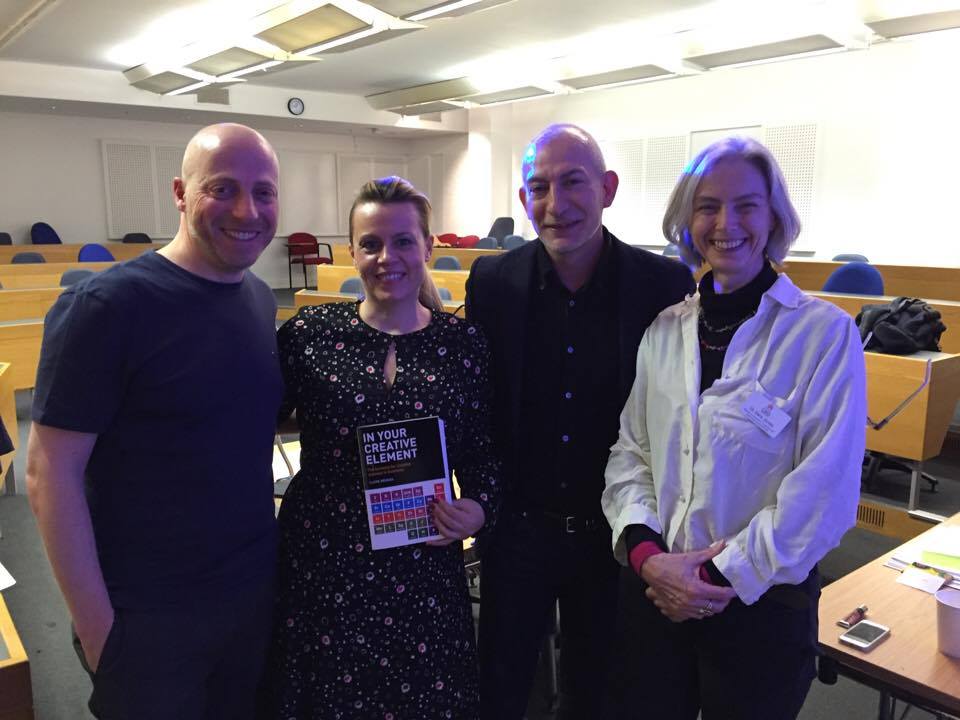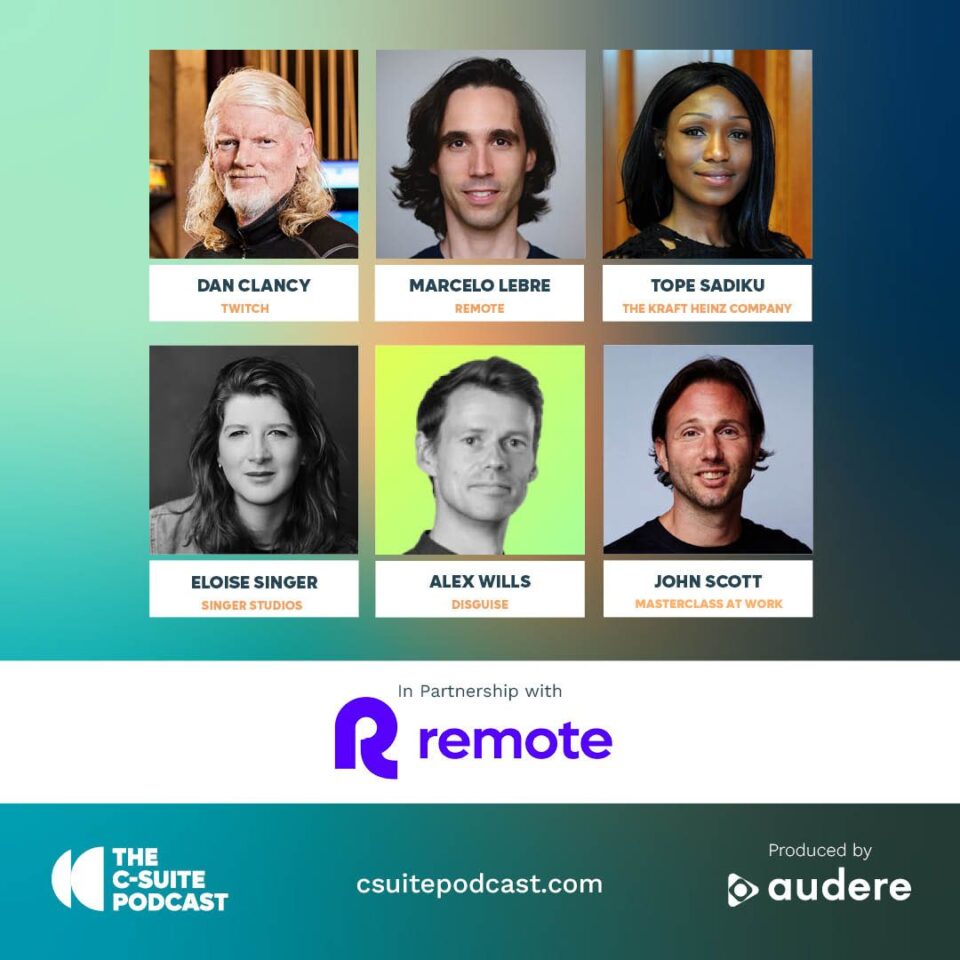

CIPR members receive 5 CPD points and PRCA members receive 10 CPD points for listening to this podcast if they log it at their respective CPD programmes.
Recorded at Cass Business School, London where Claire Bridges was launching her book, In Your Creative Element.

L-R: Russell Goldsmith, Claire Bridges, Gerry Hopkinson, Dr Sara Jones
Please note: The deadline to enter the competition that is mentioned in the podcast has now closed.
Claire explained that the question she set out to answer when she started writing the book was ‘What does it take to be creative in Business?’, but beyond that, she also wanted to find out whether you can encourage and give people the skills to be more creative, whether you can drive and develop a creative culture and what makes companies stagnate or thrive or even die if they are not creative. That led Claire to study the Masters in Innovation, Creativity and Leadership (MICL) at Cass and in the final module of the course, she, along with the other students, had to actually be physically creative.
Having been binge-watching the TV series ‘Breaking Bad’ and therefore constantly seeing chemical symbols in front of her (see below), she was inspired to create a Periodic Table of creative elements as a poster, and from there it led to the book!
As we recorded the podcast, we delved into some of the individual creative elements listed in the book, but in terms of ensuring that creativity comes through in your company, for Gerry, it’s really about the little things that you bring together that create something that is greater than the sum of its parts. He said the key things that you can point to are Culture [C], Leadership [Lr] and setting the right Environment [Ev] where people can find a way to realise their creative potential. First and foremost, that environment has to be one of Trust [T], where people are allowed to experience Failure [Fe] and where people are believed in – where they have the Freedom [Fr] to share ideas. Gerry also believes that creativity comes from diversity and therefore the more different kinds of people you have together, the more likely you are to get to good ideas.
Sara agreed with the point about diversity and added that for her, one of the lovely things about the MICL was that the students on the course come from so many different directions. She also felt that it’s not impossible for any business that may be established in its ways to bring in new creative thinking and processes, perhaps by bringing in some new influences and that whilst change may be difficult, ultimately, it comes from individuals within the organisation.
When it comes to those individuals being creative, Claire thinks a huge part of it is about confidence, about being disciplined and practice. In fact, she believes Creativity [Cr] can be taught out of us – she said there are quite a lot of studies that show that the creative output of many 3-6 year olds is at a genius level, but when tested again at 11 years old, only 2-3% are still at that level, not because they didn’t have it in the first place, but because they now don’t believe in themselves as creative individuals.
Sara added further to this about the fact that creativity can be stifled in the business environment and that there is research around the social factors that come into play when people are being creative in a group context, such as ‘Evaluation [Ev] apprehension’, where people are too scared to say anything because they think their ideas might be poorly evaluated, or ‘Production Blocking’ where one person holds the floor and won’t let others contribute. However, there are digital tools that have been designed to support the creative process to mitigate against social factors, for example, making ideas anonymous through an electronic brainstorming system to help get over evaluation apprehension.
One of the elements in the book that Gerry’s business was quoted around was that of Courage [Co] and he said that one of the most courageous things he and his business partner Nik Govier did when setting up Unity was to completely reinvent the planning function and the way they thought about what PR is. They believed PR should be about humans, and trying to increase human happiness, They therefore went against the grain of the whole industry (PR, Advertising and Marketing), which Gerry believes is still based on behaviourism, i.e. watching what the target audience does rather than asking what people want out of life and what employees want when they come to work and how can they be happier at work. They therefore invested, at the very early start up stage, in bringing in someone with a PhD in Social Psychology to set up a planning function, which helped them learn things that are now the bedrock of their business. Building on this, Gerry said that they also brought in completely different disciplines to their team, for example, introducing product design to what is essentially a service industry, which Gerry said was fantastic as the people they brought in had a completely different way of thinking, energising the way the company worked and responded to briefs.
Gerry said that the key elements that make up Unity’s success are Love [L], Trust [T], Curiosity [Cs] and Play (interestingly not featured in the book, although Fun [F] is), the latter of which he thinks is underrated. For example, he is a firm believer in people actually going taking their allotted hour lunch break tother, that nobody uses anymore, enjoying each other’s company and not talking about work, as suddenly ideas will pop into your head!
There’s so much more we covered in the show, you’ll just have to listen to it!


